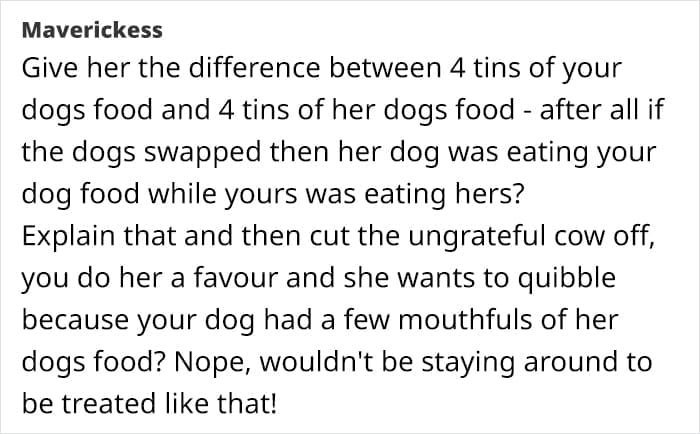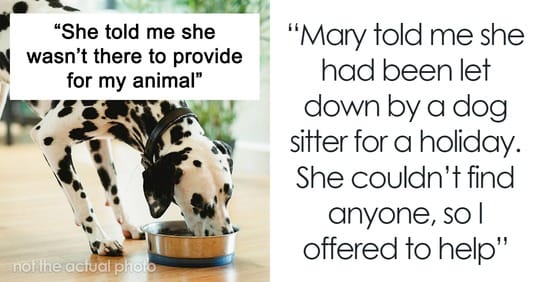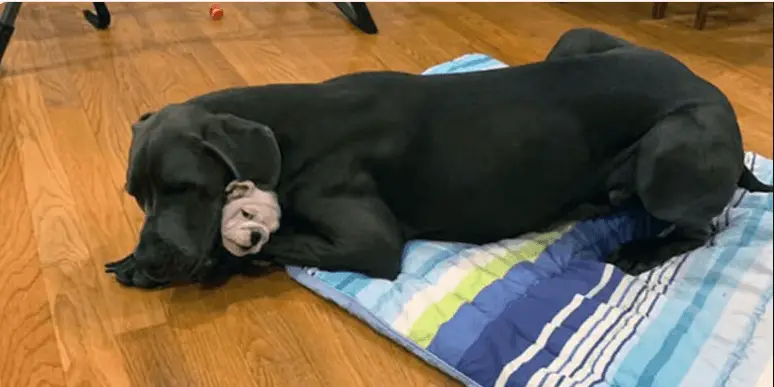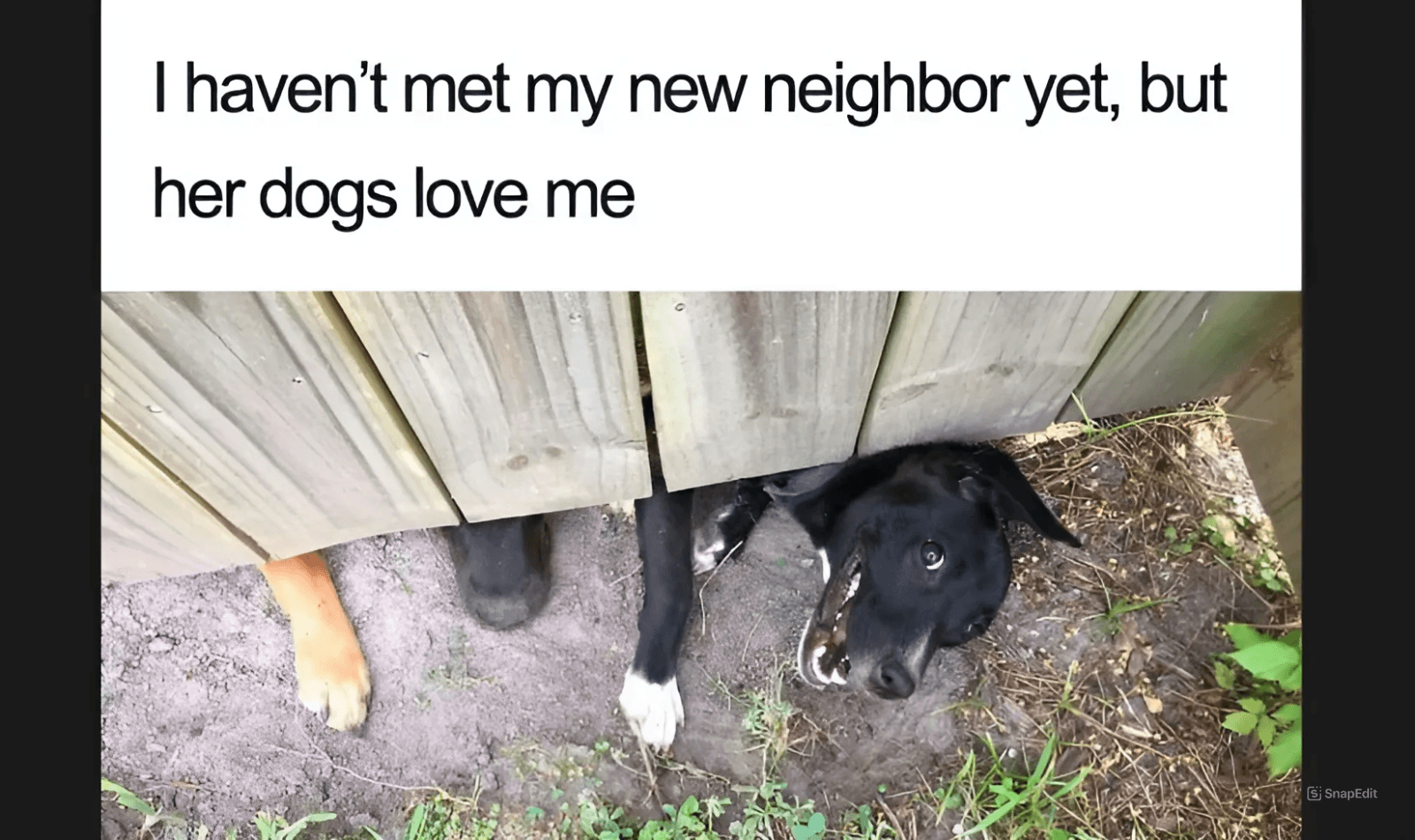Gratitude is a virtue that defines good character, yet it is often missing in many people. Some individuals not only neglect to say a simple “thank you,” but they also exhibit a sense of entitlement, making unreasonable demands even after receiving help. Such attitudes can turn acts of kindness into sources of frustration and regret.
Take, for instance, a recent story about a woman who saved money because a friend generously offered to care for her dogs for free. Instead of showing appreciation, she shocked her friend by demanding compensation after the friend’s dog accidentally ate a can of her premium dog food.
This left the friend questioning whether she had done something wrong and even contemplating giving in to the unfair demand. The situation highlights the challenge of navigating generosity when met with ingratitude.
The concept of gratitude is absent in many people

A woman saved money on dog sitting after a friend of hers offered to do it for free



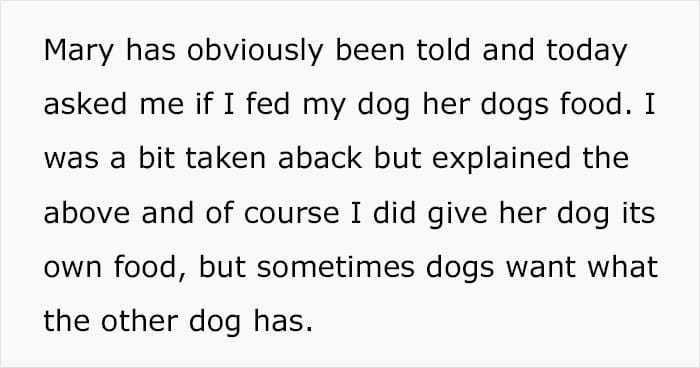

However, she showed her thanks by charging the friend for dog food “compensation”

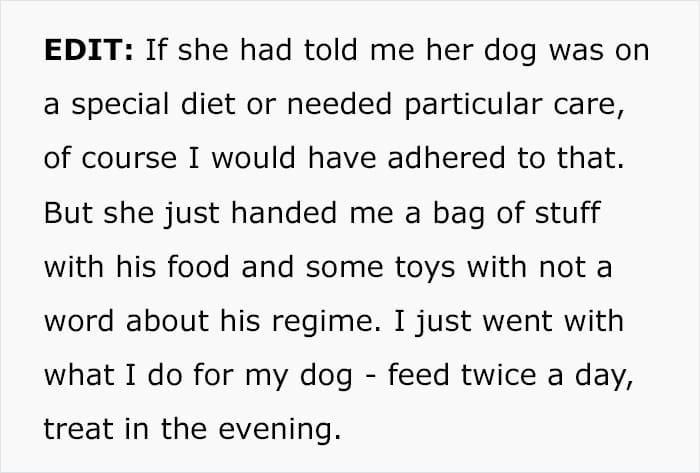
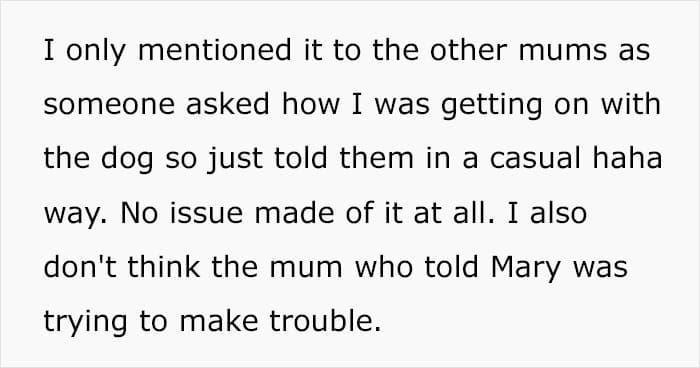
Ungrateful people are likely miserable and may face “chronic unhappiness”
Ungrateful individuals often fail to recognize and value kindness for what it truly is, as illustrated by the woman in this story. According to Dr. Susan Krauss Whitbourne, an author and academic, such people are likely to remain “chronically unhappy.” Writing for Psychology Today, Dr. Whitbourne explains that their dissatisfaction stems from a self-perpetuating cycle: they believe others will never meet their expectations, which discourages those around them from offering help. This creates a “vicious cycle” where ingratitude begets further isolation.
Psychologist Jennifer Delgado Suàrez, based in Spain, echoes this view. Referencing a study by Hope College in Michigan, she highlights that gratitude is closely tied to happiness. Suàrez argues that ungrateful individuals are trapped in a “loop of dissatisfaction,” unable to recognize life as a remarkable gift. Their inability to appreciate even small acts of kindness leads to a persistent state of unhappiness.
The Greater Good Magazine from the University of California, Berkeley, describes ungrateful people as possessing traits such as arrogance, vanity, and an inflated sense of self-importance. These characteristics align with narcissistic personality disorder and can often coexist with other psychological issues, according to Suàrez. She further notes that ungratefulness can fuel depression, anxiety, and other unhealthy behaviors, creating a psychological state dominated by unmet expectations and perpetual frustration.
Prioritize protecting your peace when dealing with an ungrateful person
Encountering ungrateful behavior, especially from someone you consider a friend, can be disheartening. However, safeguarding your inner peace should be a top priority. Accepting the reality of such situations while maintaining your emotional well-being is often the most constructive path forward.
Dr. Barbara Markway, an experienced psychologist and writer, offers practical advice for navigating interactions with difficult individuals. She emphasizes the importance of refraining from judgment and instead responding with empathy. According to Dr. Markway, unreasonable behavior often stems from feelings of vulnerability or fear, and approaching such situations with understanding can help you see things from the other person’s perspective.
Additionally, Dr. Markway suggests exploring whether the ungrateful behavior may reflect a deeper, unspoken need. Asking what the other person is trying to achieve or avoid could uncover underlying issues. While they may not always provide a clear answer, responding with respect and dignity remains crucial. As Dr. Markway notes, “Showing contempt will not help productively resolve the situation.”
For the author, engaging in a calm, meaningful conversation with their friend might bring clarity to the matter. While giving in to the demands might temporarily ease the tension, it’s unlikely to address the root of the problem. What would you do in such a situation—would you comply with the request, or stand firm on principle?
Commenters didn’t hold back on their opinions about the woman







